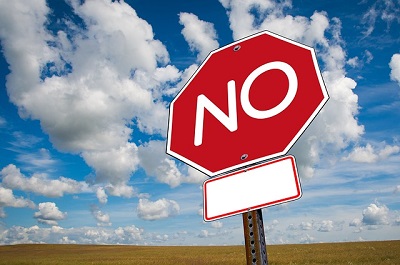Chronic Seminal Vesiculitis: What to Avoid
Seminal vesiculitis is one of the common infectious diseases of the male reproductive system and can be classified into acute seminal vesiculitis and chronic seminal vesiculitis.

When acute seminal vesiculitis is not treated promptly and thoroughly or recurs frequently, it can become chronic. Certain daily life restrictions are crucial for treatment and recovery for patients with chronic seminal vesiculitis.
So, what are the restrictions for patients with chronic seminal vesiculitis?
Sexual activity is an aspect that requires special attention for patients with chronic seminal vesiculitis:
For patients with chronic seminal vesiculitis, the seminal vesicle wall already has inflammation and damage. If sexual activity is too frequent, it will further burden the seminal vesicles, making it difficult for the inflammation to heal and possibly worsening the condition.
However, abstinence is also not advisable. Long-term abstinence can cause semen to accumulate in the seminal vesicles, increasing the pressure inside, which is not conducive to the resolution of inflammation. Therefore, patients with chronic seminal vesiculitis should maintain moderate sexual activity, generally recommended as 1-2 times per week.
Additionally, attention should be paid to hygiene during sexual activity, avoiding unclean sexual behaviors, and cleaning the external genitalia before and after intercourse to prevent bacterial infections.
The diet also has a significant impact on the treatment and recovery of chronic seminal vesiculitis:
Spicy foods such as chili, Sichuan pepper, ginger, and garlic are highly irritating and can cause congestion and edema of the seminal vesicles, exacerbating inflammation. Therefore, patients with chronic seminal vesiculitis should avoid consuming spicy and irritating foods as much as possible.
Secondly, alcohol consumption is also one of the restrictions for patients with chronic seminal vesiculitis. Alcohol has a vasodilatory effect, which can cause the blood vessels in the seminal vesicles to expand and congest, worsening inflammation. Additionally, alcohol can lower the body's immunity, making it challenging to control inflammation.
Furthermore, patients with chronic seminal vesiculitis should also avoid greasy foods. Greasy foods such as fried foods, fatty meats, and creams are hard to digest and can lead to internal damp heat, worsening the symptoms of seminal vesiculitis.
Moreover, cold foods such as ice cream, chilled drinks, and sashimi can cause internal cold stagnation, obstructing the flow of qi and blood and affecting the recovery of seminal vesiculitis. Therefore, patients with chronic seminal vesiculitis should avoid consuming cold foods as much as possible.
In addition to sexual activity and diet, patients with chronic seminal vesiculitis also have some restrictions regarding their daily habits:
Prolonged sitting can lead to poor blood circulation in the pelvis, causing congestion in the seminal vesicles, which is not conducive to the resolution of inflammation. Therefore, patients with chronic seminal vesiculitis should avoid prolonged sitting, get up, and move around every 1-2 hours.
Staying up late for extended periods can lead to a decline in the body's immunity, making inflammation prone to recurrence. Therefore, patients with chronic seminal vesiculitis should maintain a regular schedule and ensure adequate sleep, at least 7-8 hours daily.
Excessive fatigue can put the body under stress, causing endocrine disorders and decreased immunity, which can worsen the symptoms of seminal vesiculitis. Patients should get enough rest, avoid overexertion, and participate in moderate physical activities such as walking, jogging, and Tai Chi while avoiding strenuous exercise.
During the treatment of chronic seminal vesiculitis, patients also need to pay attention to medication restrictions:
Patients should strictly follow the doctor's prescription, not adjust the dosage or stop medication alone. Secondly, patients should avoid the misuse of antibiotics. Although antibiotics are commonly used to treat seminal vesiculitis, their misuse can lead to bacterial resistance and imbalance of the bacterial flora, worsening the condition.
Diuretic and Anti-inflammatory Pill has a more natural effect in treating chronic seminal vesiculitis. Still, avoiding simultaneously taking them with other Traditional Chinese Medicines or proprietary Chinese medicines is essential. During the medication period, alcohol, chili, chicken, fish, beef, shrimp, and seafood pickles should be strictly avoided to prevent prolonging the treatment time.
In conclusion, patients with chronic seminal vesiculitis need to observe many restrictions in their daily lives. Only by strictly adhering to these restrictions can they better promote the resolution of inflammation, improve the effectiveness of treatment, and recover health as soon as possible.
You may also be interested in:
Five Useful Recommendations Of Doctors To Treat Seminal Vesiculitis In Male Patients
What to Do If You Have Seminal Vesiculitis? 6 Steps for Treatment and Care
How to Effectively Exercise for Seminal Vesiculitis Patients?



